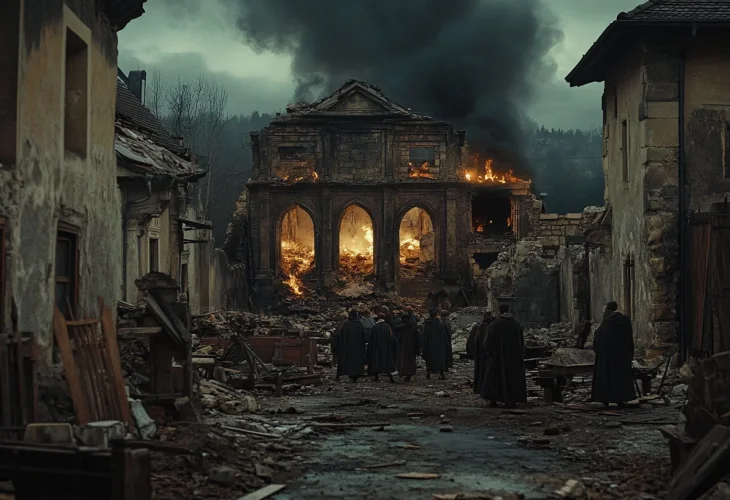History and Archaeology
A Community Torn: The Tragic Blood Libel in Speyer
In 1196, an unfounded accusation set off a brutal attack that devastated one of Germany’s ancient Jewish communities

In the month of Adar, in the year 1196, a devastating blood libel struck the city of Speyer, home to one of the oldest Jewish communities in Germany. When a body was found near the city’s river channel, there was no investigation, no search for truth, only a rush to judgment. Ignorant townspeople quickly claimed that Jews had killed a Christian.
On the road into the city, two carriages carrying Jewish passengers were stopped. The crowd, whipped into a frenzy, murdered nine innocent Jews on the spot. These travelers had no connection to the incident and no idea that such an accusation had even been made.
At the time, the Speyer community was led by the respected Rabbi Isaac ben Asher, known as “Riva the Second.” He was the grandson of the first Riva and a student of the great commentator Rashi. Among the victims of this attack was his own young daughter.
After the murders, the Jews tried to bury their loved ones with dignity in a Jewish cemetery. But the attackers committed an even deeper cruelty, they desecrated the grave of Rabbi Isaac’s daughter and hung her body in the town square for all to see. Rabbi Isaac, stricken with grief, tried to protect his daughter’s honor in the midst of the chaos. For this, he was killed as well.
Terrified for their lives, the Jews took refuge in Speyer’s old synagogue. They climbed to the attic and pulled up the ladder to keep attackers away, buying themselves precious time. Under the cover of night, they fled the city, leaving behind their homes and possessions, which were quickly looted. The synagogue was set on fire, and the sacred Torah scrolls were desecrated.
Duke Otto, the regional ruler, depended on the taxes and financial contributions of the Jews. Furious that this attack had harmed his source of income, he raised a military force and laid siege to Speyer. The city’s bishop tried to defend the attackers, but Otto’s soldiers overpowered them. The bishop’s residence and the homes of others involved in the massacre were burned. The worst offenders were executed by hanging. The Christian population of Speyer was fined 150 gold coins for the violence committed against the Jews.
Emperor Henry VI of Germany, Duke Otto’s brother, reviewed the case and decided that this fine was not enough to help the Jews recover. He ordered additional compensation so they could rebuild their synagogue and homes, slowly allowing the community to return to something resembling normal life. This event is recorded in the “Book of Memorial” by Rabbi Ephraim of Bonn, a Tosafist scholar and brother of Rabbi Hillel of Bonn, who were lovingly known by their students as the “Sons of Yitzhar.”
But the suffering in Speyer was not over. Ninety years later, another blood libel erupted. This time, the body of a nobleman’s grandson was found, and once again the Jews were blamed. Many Jews were killed, and the survivors narrowly escaped the violence.
The Jews of the Rhine Valley, worn down by years of persecution, decided to leave Germany and make a secret journey to the Land of Israel. Their leader was the famed Rabbi Meir of Rothenburg. But their plan was discovered. Emperor Rudolph’s agents captured Rabbi Meir and imprisoned him for life. His students scattered, and the most famous among them, Rabbi Asher, known as the Rosh, escaped to Spain, where he spread his teacher’s Torah teachings.
After this, Emperor Rudolph issued a decree allowing the confiscation of property from any Jew who left the country. The Jews of Speyer and the Rhine Valley continued to face heavy burdens from the authorities, and over time the Jewish community in Speyer disappeared entirely.
It was not until the 17th century that Jews returned to Speyer under charters granted by King Charles. But in the generations that followed, many were drawn to the ideals of the Enlightenment and drifted from traditional Jewish practice. During the Holocaust, the ancient community of Speyer was destroyed completely, ending a history that had endured for centuries.

